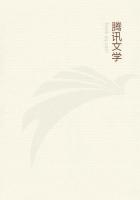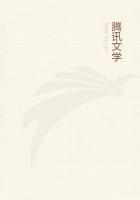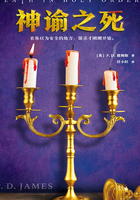Like every other great poet he somehow expressed the feelings of his day, and I suppose that at the time he wrote "Maud" he said more fully what the whole English-speaking race were then dimly longing to utter than any English poet who has lived.
One need not question the greatness of Browning in owning the fact that the two poets of his day who preeminently voiced their generation were Tennyson and Longfellow; though Browning, like Emerson, is possibly now more modern than either. However, I had then nothing to do with Tennyson's comparative claim on my adoration; there was for the time no parallel for him in the whole range of literary divinities that I had bowed the knee to. For that while, the temple was not only emptied of all the other idols, but I had a richly flattering illusion of being his only worshipper. When I came to the sense of this error, it was with the belief that at least no one else had ever appreciated him so fully, stood so close to him in that holy of holies where he wrought his miracles.
I say tawdily and ineffectively and falsely what was a very precious and sacred experience with me. This great poet opened to me a whole world of thinking and feeling, where I had my being with him in that mystic intimacy, which cannot be put into words. I at once identified myself not only with the hero of the poem, but in some so with the poet himself, when I read "Maud"; but that was only the first step towards the lasting state in which his poetry has upon the whole been more to me than that of any other poet. I have never read any other so closely and continuously, or read myself so much into and out of his verse. There have been times and moods when I have had my questions, and made my cavils, and when it seemed to me that the poet was less than I had thought him; and certainly I do not revere equally and unreservedly all that he has written; that would be impossible. But when I think over all the other poets I have read, he is supreme above them in his response to some need in me that he has satisfied so perfectly.
Of course, "Maud" seemed to me the finest poem I had read, up to that time, but I am not sure that this conclusion was wholly my own; I think it was partially formed for me by the admiration of the poem which I felt to be everywhere in the critical atmosphere, and which had already penetrated to me. I did not like all parts of it equally well, and some parts of it seemed thin and poor (though I would not suffer myself to say so then), and they still seem so. But there were whole passages and spaces of it whose divine and perfect beauty lifted me above life. I did not fully understand the poem then; I do not fully understand it now, but that did not and does not matter; for there something in poetry that reaches the soul by other enues than the intelligence. Both in this poem and others of Tennyson, and in every poet that I have loved, there are melodies and harmonies enfolding significance that appeared long after I had first read them, and had even learned them by heart; that lay weedy in my outer ear and were enough in their Mere beauty of phrasing, till the time came for them to reveal their whole meaning. In fact they could do this only to later and greater knowledge of myself and others, as every one must recognize who recurs in after-life to a book that he read when young; then he finds it twice as full of meaning as it was at first.
I could not rest satisfied with "Maud"; I sent the same summer to Cleveland for the little volume which then held all the poet's work, and abandoned myself so wholly to it, that for a year I read no other verse that I can remember. The volume was the first of that pretty blue-and-
gold series which Ticknor & Fields began to publish in 1856, and which their imprint, so rarely affixed to an unworthy book, at once carried far and wide. Their modest old brown cloth binding had long been a quiet warrant of quality in the literature it covered, and now this splendid blossom of the book****** art, as it seemed, was fitly employed to convey the sweetness and richness of the loveliest poetry that I thought the world had yet known. After an old fashion of mine, I read it continuously, with frequent recurrences from each new poem to some that had already pleased me, and with a most capricious range among the pieces. "In Memoriam" was in that book, and the "Princess"; I read the "Princess" through and through, and over and over, but I did not then read "In Memoriam" through, and I have never read it in course; I am not sure that I have even yet read every part of it. I did not come to the "Princess," either, until I had saturated my fancy and my memory with some of the shorter poems, with the "Dream of Fair Women," with the "Lotus-Eaters," with the "Miller's Daughter," with the "Morte d'Arthur,"
with "Edwin Morris, or The Lake," with "Love and Duty," and a score of other minor and briefer poems. I read the book night and day, in-doors and out, to myself and to whomever I could make listen. I have no words to tell the rapture it was to me; but I hope that in some more articulate being, if it should ever be my unmerited fortune to meet that 'sommo poeta' face to face, it shall somehow be uttered from me to him, and he will understand how completely he became the life of the boy I was then.
I think it might please, or at least amuse, that lofty ghost, and that he would not resent it, as he would probably have done on earth. I can well understand why the homage of his worshippers should have afflicted him here, and I could never have been one to burn incense in his earthly presence; but perhaps it might be done hereafter without offence.
I eagerly caught up and treasured every personal word I could find about him, and I dwelt in that sort of charmed intimacy with him through his verse, in which I could not presume nor he repel, and which I had enjoyed in turn with Cervantes and Shakespeare, without a snub from them.

